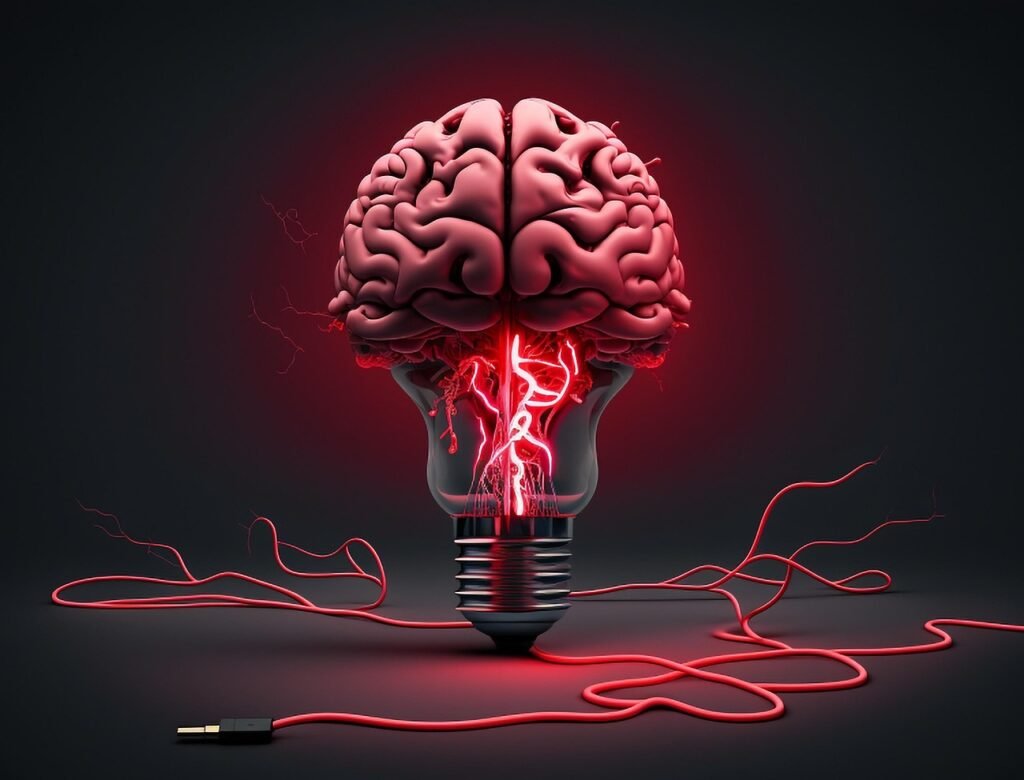7 Proven Strategies to Manage ADHD-Related Impulsive Behavior
It is more than just acting on a whim—it’s a behavioral pattern that can significantly affect daily life, relationships, and emotional health. Often linked to ADHD and other neurological conditions, impulsive behavior can be managed with the right strategies and support.
In this guide, we’ll explore the causes, symptoms, consequences, and 7 practical strategies to help you regain control over impulsive actions and improve your quality of life.

🔍 What Is Impulsiveness?
It refers to the tendency to act on sudden urges or desires without considering the consequences. While occasional impulsive behavior is normal, chronic impulsivity can disrupt relationships, affect work performance, and lead to long-term regrets.
It’s commonly associated with Attention-Deficit/Hyperactivity Disorder (ADHD), impulse control disorders, and emotional dysregulation. However, it can also stem from environmental stress, poor sleep, or dietary imbalances.
🧠 Common Causes
- ADHD (Attention-Deficit/Hyperactivity Disorder):
A core symptom of ADHD is acting without forethought, often leading to risky or poorly considered actions. - Stress and Emotional Overload:
High-stress levels overwhelm the brain’s decision-making centers, triggering impulsive reactions as a coping mechanism. - Lack of Sleep:
Sleep deprivation weakens the brain’s executive function, reducing impulse control. - Substance Use:
Alcohol and drugs impair judgment, making impulsive decisions more likely. - Neurological and Psychiatric Disorders:
Conditions such as bipolar disorder, borderline personality disorder, and intermittent explosive disorder can increase impulsiveness. - Dietary Deficiencies:
Lack of omega-3s, B vitamins, and key nutrients may impair cognitive control and worsen impulsive tendencies.
⚠️ Signs and Symptoms
- Acting without thinking
- Difficulty delaying gratification
- Frequent mood swings or emotional outbursts
- Interrupting conversations
- Reckless spending or risky behaviors
- Struggling to commit to long-term goals
💥 The Hidden Cost of Impulsiveness: How It Affects Your Life
- Personal Relationships:
Impulsive words or actions can cause misunderstandings and damage trust. - Workplace Performance:
Trouble meeting deadlines or making strategic decisions can impact career growth. - Financial Instability:
Impulsive purchases or gambling habits often lead to debt and regret. - Legal Risks:
Actions like reckless driving or verbal aggression may lead to legal trouble. - Emotional Health:
Ongoing impulsivity can fuel guilt, shame, and lowered self-esteem.
✅ 7 Practical Strategies to Control Impulsiveness
- Practice Mindfulness
Regular meditation helps increase awareness of thoughts and feelings, reducing automatic reactions. - Use Delay Tactics
Pause for 5–10 seconds before responding or making decisions. It rewires your impulse response over time. - Set Clear Boundaries
Remove yourself from situations that trigger impulsivity and set firm personal rules. - Follow a Brain-Healthy Diet
Focus on foods rich in omega-3s, B vitamins, and magnesium to support self-control and emotional regulation. - Stay Physically Active
Exercise reduces stress hormones and boosts executive functioning. - Develop Problem-Solving Skills
Learn to analyze situations logically, anticipate outcomes, and choose thoughtful responses. - Journal or Reflect Daily
Writing helps recognize triggers and track progress over time.
💊 Treatment Options for Chronic Impulsiveness
- Cognitive-Behavioral Therapy (CBT):
Helps reframe thoughts and build self-control strategies. - Behavioral Therapy:
Focuses on action-oriented tools to reduce impulsivity. - Medication (when necessary):
- Stimulants (e.g., Ritalin, Adderall): Often used in ADHD to improve impulse control.
- Non-Stimulants (e.g., Guanfacine, Atomoxetine): Helpful for those sensitive to stimulants.
- Mood Stabilizers: Useful in bipolar-related impulsiveness.
- Support Groups & Peer Coaching:
A safe space to share experiences and solutions with others facing similar challenges.
Learn more about ADHD and impulsive behavior from the NHS →
🧭 When to Seek Professional Help
Seek support if:
- Impulsiveness causes conflict or regret regularly
- Risky behavior becomes frequent
- Emotional dysregulation affects your work or home life
- It’s linked to an underlying condition like ADHD, BPD, or bipolar disorder
💬 Frequently Asked Questions
1. Is impulsiveness always linked to ADHD?
No. While it’s common in ADHD, it can also result from stress, trauma, mood disorders, or poor lifestyle habits.
2. Can impulsiveness be managed without medication?
Yes. Mindfulness, therapy, and lifestyle adjustments often make a significant difference.
3. How long does treatment take to work?
It varies. Some see progress in weeks, while others need several months for sustained change.
🎯 Final Thoughts: You Can Take Back Control
Impulsiveness doesn’t define you. With the right tools—whether it’s mindfulness, therapy, dietary changes, or professional help—you can reduce impulsive behavior and make better decisions daily. Identify your triggers, apply proven strategies, and don’t hesitate to reach out for support.
📩 Ready to Take Control?
Explore more expert-backed ADHD strategies and guidance:
👉 ADHD Blog with Insights and Support Coaching (adhdtribe.co.uk)
Let me know if you’d like this in plain text, HTML, or Word format!
What is Impulsiveness?
Impulsiveness refers to the tendency to act on sudden urges or desires without considering the consequences. While occasional impulsive behavior is normal, chronic impulsivity can lead to challenges in personal relationships, work performance, and decision-making. Impulsiveness is commonly associated with conditions like Attention-Deficit/Hyperactivity Disorder (ADHD) and impulse control disorders but can also stem from environmental and emotional factors.
Common Causes of Impulsiveness
1. Attention-Deficit/Hyperactivity Disorder (ADHD):
- Impulsiveness is a core symptom of ADHD, characterized by difficulty delaying gratification and acting without forethought.
2. Stress and Emotional Overload:
- High stress levels can impair decision-making, leading to impulsive actions as a coping mechanism.
3. Lack of Sleep:
- Sleep deprivation affects the brain’s executive functions, reducing self-control and increasing impulsivity.
4. Substance Use:
- Alcohol and drugs impair judgment and can trigger impulsive behavior.
5. Neurological and Psychiatric Disorders:
- Conditions like bipolar disorder, borderline personality disorder (BPD), and impulse control disorders (e.g., intermittent explosive disorder) can contribute to impulsiveness.
6. Dietary Factors:
- Poor nutrition, particularly deficiencies in omega-3 fatty acids or B vitamins, can impair cognitive control.
Signs and Symptoms of Impulsiveness
- Difficulty delaying gratification.
- Acting without considering the consequences.
- Interrupting conversations or speaking out of turn.
- Frequent mood swings or emotional outbursts.
- Risk-taking behaviors (e.g., reckless spending, dangerous activities).
- Struggling to stick to long-term goals or plans.
The Impact of Impulsiveness on Daily Life
1. Personal Relationships:
- Impulsive decisions or behaviors can lead to misunderstandings, conflicts, and strained relationships.
2. Workplace Performance:
- Difficulty adhering to deadlines or making thoughtful decisions can hinder productivity and career growth.
3. Financial Problems:
- Impulsive spending or gambling can lead to debt and financial instability.
4. Legal Issues:
- Impulsive actions, such as aggressive behavior or reckless driving, can result in legal consequences.
5. Emotional Well-being:
- Chronic impulsivity can cause feelings of regret, guilt, and low self-esteem.
Practical Strategies to Manage Impulsiveness
1. Practice Mindfulness:
- Mindfulness meditation helps increase awareness of thoughts and emotions, reducing impulsive reactions.
2. Use Delay Tactics:
- Pause for a set amount of time (e.g., 5-10 seconds) before making decisions, allowing time for reflection.
3. Set Clear Boundaries:
- Establish personal boundaries to help avoid situations where impulsive behavior is likely.
4. Maintain a Healthy Diet:
- Consume foods rich in omega-3 fatty acids, B vitamins, and antioxidants to support cognitive function and impulse control.
5. Exercise Regularly:
- Physical activity helps regulate mood and reduce impulsive tendencies.
6. Develop Problem-Solving Skills:
- Learn to analyze situations, anticipate consequences, and generate alternative responses.
Treatment Options for Chronic Impulsiveness
1. Cognitive-Behavioral Therapy (CBT):
- CBT helps identify and change negative thought patterns that trigger impulsive behavior.
2. Behavioral Therapy:
- Teaches coping mechanisms and strategies to manage impulses.
3. Medication:
- Stimulants (for ADHD): Medications like Adderall or Ritalin help improve focus and self-control.
- Non-Stimulants: Atomoxetine (Strattera) or guanfacine may be prescribed for individuals who do not respond to stimulants.
- Mood Stabilizers: Used for individuals with mood-related impulsivity (e.g., bipolar disorder).
4. Group Therapy or Support Groups:
- Provides a supportive environment for individuals to share experiences and learn from others.
When to Seek Professional Help
While occasional impulsivity is normal, professional intervention may be necessary if:
- Impulsiveness significantly interferes with daily life.
- There are frequent instances of risky or dangerous behaviors.
- The individual experiences emotional distress or regret due to their actions.
- Impulsiveness is linked to an underlying condition like ADHD or bipolar disorder.
Frequently Asked Questions About Impulsiveness
1. Is impulsiveness always linked to ADHD?
No, while impulsiveness is a common symptom of ADHD, it can also result from stress, mood disorders, or environmental factors.
2. Can impulsiveness be controlled without medication?
Yes, many individuals successfully manage impulsiveness through behavioral therapy, mindfulness practices, and lifestyle changes.
3. How long does it take to see improvements with treatment?
Improvements can vary. Some individuals notice changes within weeks of starting therapy or medication, while others may require several months.
Final Thoughts: Overcoming Impulsiveness
Impulsiveness can be challenging, but it is manageable with the right strategies and support. By identifying triggers, practicing mindfulness, and seeking professional guidance when necessary, individuals can develop better control over their actions and improve their overall quality of life. If impulsiveness is interfering with your daily life, consider consulting a healthcare professional for a personalized treatment plan.
Meta Title:
Impulsiveness: Causes, Symptoms, and Effective Management Strategies
Meta Description:
Discover the causes of impulsiveness and explore practical strategies, treatments, and when to seek help. Manage impulsive behavior effectively in daily life.
Tags:
impulsiveness, managing impulsiveness, impulsivity, ADHD symptoms, emotional regulation, impulse control disorders, impulsiveness in adults, impulsiveness in children, cognitive behavior therapy, self-control techniques







